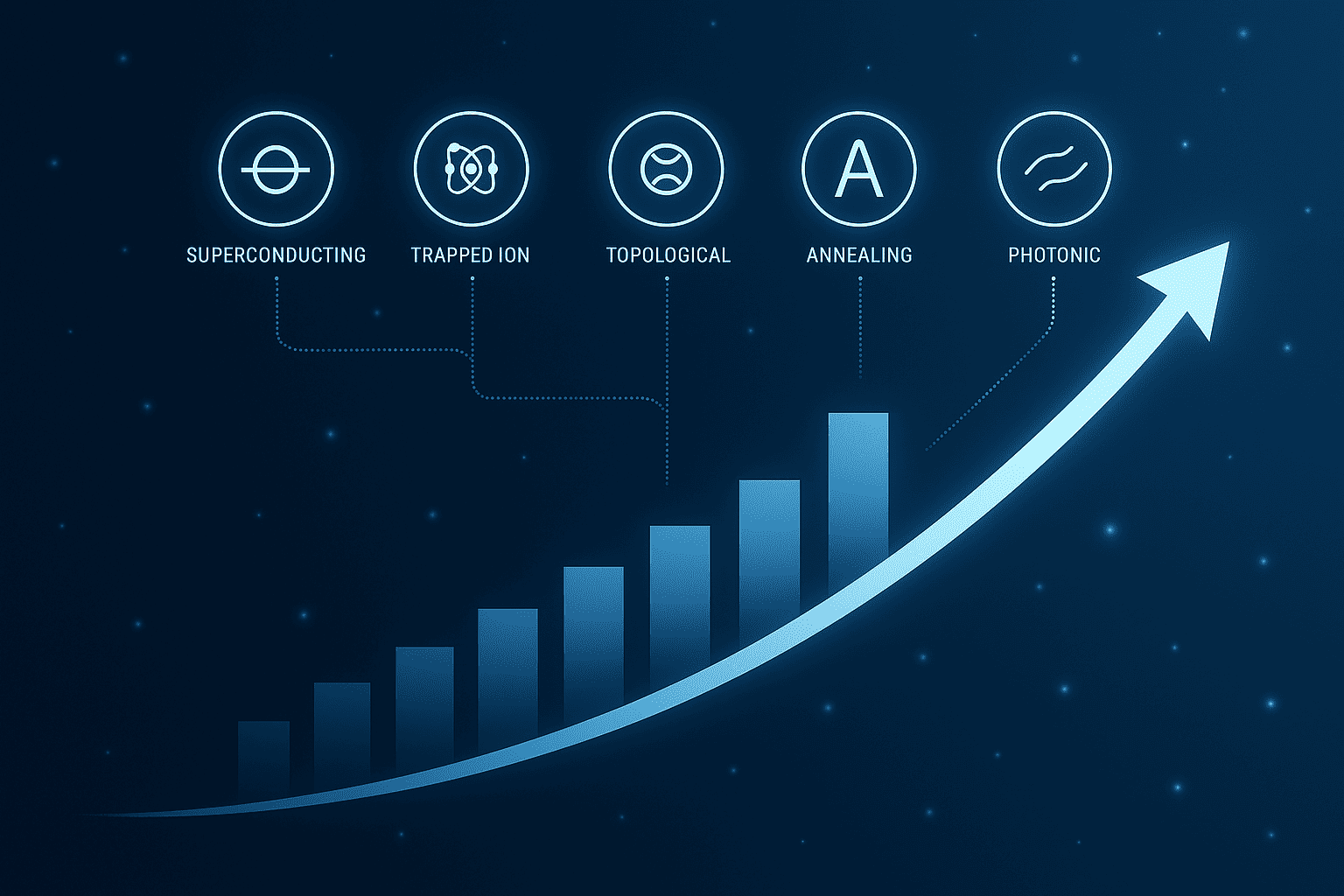The Future of Quantum Computers: Revolution or Hype?
A balanced look at quantum computing: breakthroughs, limitations, real-world applications, technical roadblocks, investment outlook, and practical timelines.

Tech headlines scream about quantum supremacy while skeptics roll their eyes at another bubble. Separating genuine breakthroughs from marketing fluff requires digging deeper than most news articles allow. Even the Arabtopcasino.com website recently published a speculative piece about how quantum computing might eventually break encryption for online gambling platforms – hardly the most pressing application, but it demonstrates how this technology captures imagination across industries. Major tech companies pour billions into research labs while startups attract venture capital with promises of quantum advantage. Meanwhile, many physicists maintain cautious optimism tempered by awareness of the enormous technical hurdles still facing practical implementation.
The Quantum Computing Landscape Today
Quantum computers exist right now, but with significant limitations. IBM, Google, and several Chinese research institutions maintain working quantum processors with 50-127 qubits. These systems require extreme cooling to near absolute zero and can maintain quantum states for mere microseconds. Error rates remain stubbornly high, necessitating error correction techniques that dramatically reduce effective computing power. Most quantum algorithms remain theoretical or run only on specialized simulated environments. The gap between laboratory demonstrations and commercial applications stretches wider than many corporate press releases suggest. Hardware improvements follow encouraging trajectories, yet quantum systems remain finnicky, expensive research tools rather than practical computing resources.
Genuine Advantages Over Classical Computing
Quantum computers solve certain problems fundamentally differently than classical machines. Specific computational tasks show provable quantum advantage, particularly in simulating quantum systems themselves. Pharmaceutical companies eye potential applications in molecular modeling that might accelerate drug discovery. Financial firms investigate portfolio optimization algorithms that could extract additional value from complex markets. Cryptography faces both threats and opportunities as quantum methods potentially break existing encryption while enabling new secure communication channels. Security researchers already develop quantum-resistant algorithms, similar to how Online blackjack games implement various security measures against conventional cheating. The challenge remains bridging theoretical advantages with practical implementations that demonstrate measurable benefits over optimized classical approaches.
Technical Roadblocks and Timeline Realities

Environmental noise easily disrupts quantum states, requiring redundant qubits to maintain computational integrity. Building stable qubits demands incredibly precise manufacturing – sometimes placing individual atoms with nanometer accuracy. Different quantum computing approaches compete for viability: superconducting circuits, trapped ions, photonic systems, and topological qubits each offer distinct advantages and challenges. Scaling these systems while maintaining coherence proves extraordinarily difficult. Most serious researchers anticipate at least 5-10 years before practical quantum advantage materializes for commercially relevant problems. Timelines beyond that become increasingly speculative, despite confident predictions from various interested parties.
Likely Near-Term Applications
Specialized hybrid systems offer the most promising immediate quantum computing applications. These machines combine classical processing with quantum components for specific computational tasks. Materials science stands to benefit particularly, with semiconductor and battery research potentially accelerated through quantum simulation. Optimization problems across logistics, manufacturing, and resource allocation represent another promising category. Machine learning algorithms might gain efficiencies through quantum-enhanced training processes, though skepticism remains about dramatic improvements. The most realistic assessment suggests incremental advances in niche scientific applications gradually expanding toward broader commercial relevance over the next decade.
Economic and Security Implications
Governments worldwide recognize quantum computing as a strategic technology with national security implications. The U.S., China, EU, and others fund research programs while establishing regulatory frameworks for quantum technologies. Encryption standards particularly face scrutiny as agencies prepare for “harvest now, decrypt later” threats against currently secure communications. The economic race creates both collaboration and competition among research institutions and corporations. Manufacturing advances in extreme precision engineering, developed for quantum computing, likely create spillover benefits for other industries. Patient investors might find opportunities, though separating viable quantum computing companies from those riding the hype cycle requires considerable technical due diligence.
Realistic Timeline for Practical Impact
The most balanced assessment suggests quantum computers will follow a trajectory similar to early classical computing – specialized tools gradually becoming more general-purpose over decades. Expecting revolutionary changes within the next five years invites disappointment. The 5-15 year timeframe might deliver specialized applications with genuine advantage in scientific research, materials development, and optimization problems. Transformative impacts on everyday computing likely remain 15+ years distant, if they materialize at all. The interim period will witness continued improvement in classical computing and quantum-inspired algorithms that deliver partial benefits without full quantum hardware. Observers should maintain healthy skepticism toward dramatic timeline claims from companies seeking investment or attention in this highly technical, challenging field.
Related:
Casino & Sports Links on Feedinco
- ⚽️ Betway Prediction
- ⚽️ 1xBet Prediction
- Best Casino Bonus
- Online Casino Bonus
- Mobile Casino Bonus
- New Online UK Casinos
- Football Free Bets
All Sports Predictions
- ⭐ Super Tips
- 🔥 HOT Football Tips
- ⚽️ Sports FREE Bets
- ⚽️ Best Betting Sites
- ⚽️ Sure Tips for Today
- ⚽️ Football Tips
- ⚽️ Daily ACCA tips
- ⚽️ Tip of the Day
- ⚽️ Soccer Prediction
- ⚽️ Winning Predictions
- 🔥 Best Prediction Site
- 🔎 Accurate Soccer Predictions
- 💸 Jackpot Predictions
- ⚽️ TODAY BETTING TIPS ⚽️
- BTTS Today
- Over 2.5 Prediction
- Full time Prediction
- Double Chance Prediction
- ⚽️ TOMORROW BETTING TIPS ⚽️
- Both Teams to Score Tomorrow
- Over 2.5 Goals Tips
- HTFT prediction
- 12 Betting Tips
- 🎾 TENNIS TIPS 🎾
- 🎾 Tennis Betting
- 🎾 Tennis Tips 1x2
- 🎮 ESPORTS TIPS 🎮
- 🎮 eSport Betting
- 🎮 eSports Predictions
- 🎮 eSports Betting Tips
- 🎮 Counter Strike Predictions
- 🎮 Dota 2 Tips
- 🎮 Overwatch Tips
- 🎮 LoL Tips
- ⭐ Casinos ⭐
- New Online UK Casinos
- Casino Free Bets NO deposit
- New NO Deposit Slots + FREE spins
- NEW Casino NO Deposit Bonus Codes
- Best Slot Sites UK
- Free spins NO deposit Mobile casino
- FREE Roulette Spins NO deposit
- Best Online Casino NZ [free pokies]
- Best Online Casino Canada
- FREE Casino Slots South Africa [no deposit bonus]
- Online Casino Games India [Online Casino, Online Roulette]
- Best Casino Bonus
- Online Casino Bonus
- Mobile Casino Bonus











































